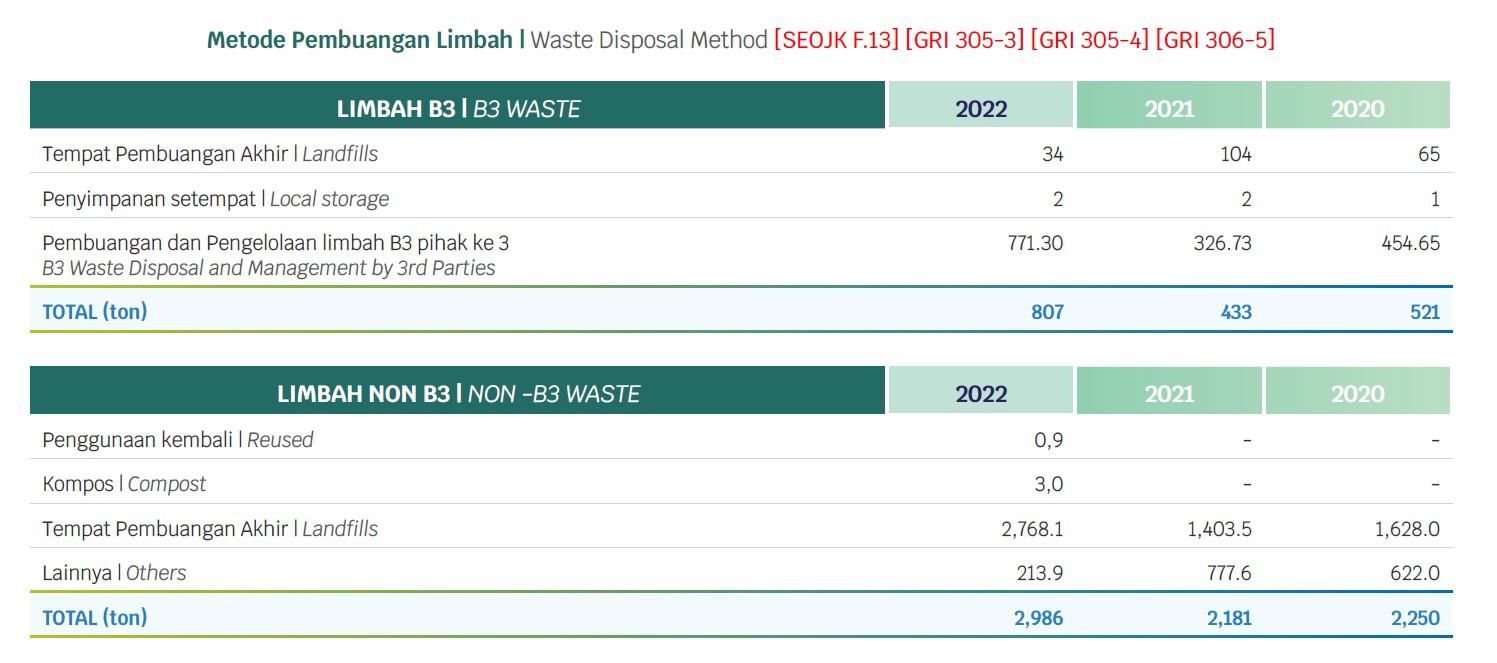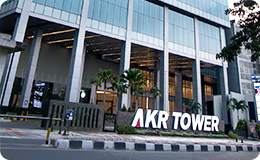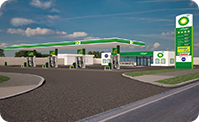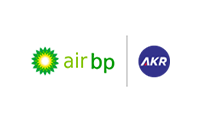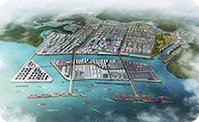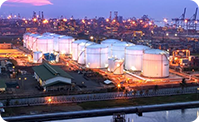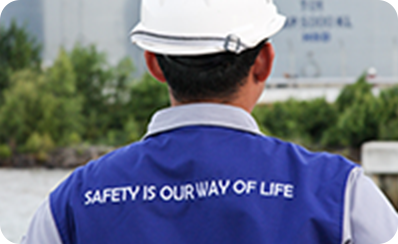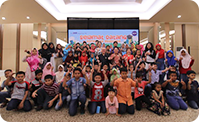Wastewater management is an important aspect in running a company’s operations that are environmentally responsible. When carrying out its wastewater management, AKR follows the applicable rules and regulations and to support sustainable development is committed to continuously improving the performance of its wastewater management. One such effort made by AKR involved developing an integrated wastewater management system at each of the Company’s operational locations. This system collects, processes, and ensures the quality standards of wastewater before they are disbursed to water bodies through regular monitoring. This is carried out to ensure the wastewater produced meets the environmental quality standards set by the Government in accordance with each industrial sector in the Company and its subsidiaries.
AKR is committed to applying the 3R (reduce, reuse and recycle) principle for waste management. The Company’s policy also refers to Government Regulations for waste management activities, one being PP Number 101 of 2014 concerning B3 waste management. These efforts are made to protect the environment and prevent pollution that can have a significant impact on health.
The types of waste generated by the Company include domestic waste, rainwater runoff that passes through the oil catcher located at the filling station bund wall and workshops, and B3 and Non-B3 waste from operational activities. AKR realizes that waste arising from operational activities has the potential to significantly impact the environment, therefore good management is needed to control the impact.
Regarding domestic waste remaining after the use of clean water, the Company treats the water first in a biotank before finally discharging it into the water bodies. The Company also cooperates with third parties to manage domestic waste. At prearranged times, third parties will take the organic waste and manage it according to the work contract agreement.
Some waste produced by the Company is categorized as hazardous waste, and includes waste from hazardous B3 packaging, used drums, used TL lamps, used batteries/accumulators, used lubricating oil, cloth rags, oily water, sludge oil and used absorbents. Hazardous waste is managed in cooperation with third parties. Other types of waste are sent to the Final Disposal Site.
The methodology used to collect data is by calculating the waste collected at the TPS LB3, and manifests provided by third parties.
